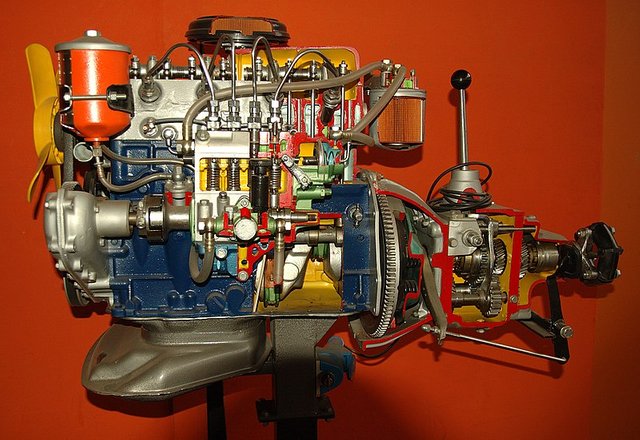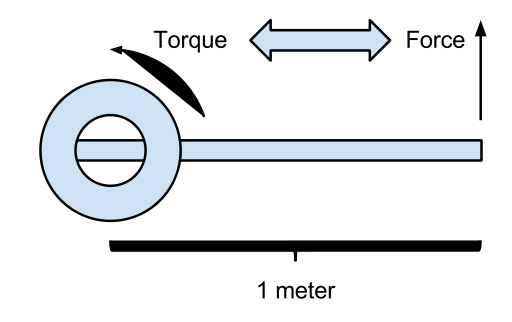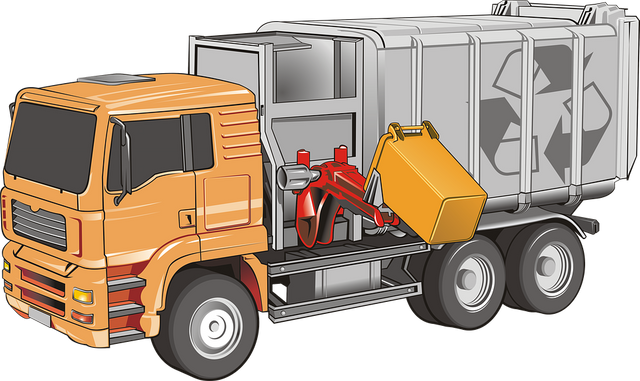Ever wondered why and how diesel engines handle so much load? Lets see!
When we talk about engines, there are a lot of things that come to mind. What they are, what they do, how they do it. Although the word engine is not restricted to just the automobile alone, it spans from people to other systems. Take for instance; a person or system that helps improve the economic status of a place can be referred to as an engine of economic growth.
Also, the CPU in computers is also an engine as it does some work to produce results. I wonder if we are in an English class. Well I just felt like passing that across. An engine is not always a mechanical device it is anything that is used for a particular purpose source.
Now talking about engines in the mechanical world, it is simply a machine that is used to convert energy into motion (or mechanical force) source. most of the time, the engines are named based on the type of fuel (or working fluid) they use to perform this energy to motion conversion. We have the likes of steam engines which from the name makes use of steam to drive the moving parts, the gas engines, petrol engines and diesel engines, even sometimes, some engines make use of a mixture of two fuels (I have seen a gas and diesel powered engine before) although those engines are usually large engines.
A step further, we have automobiles (my loved machine) classified into two based on the type of fuel they use. Yes, you guessed right – the diesel and petrol engines. A lot of people do not really know the difference between a petrol and diesel (apart from the obvious fact of the type of fuel they use) and many wouldn’t mind as far as they have a vehicle to drive around.
Actually, the petrol and diesel engines operate in quite similar cycles called the Otto and Diesel cycles respectively. The major difference being the mechanism of ignition. You can check out these posts by @adetola on the Spark and Compression ignition systems. I can assure you of a good read as it saves me the stress of explaining the concepts.
Maybe you have, maybe you haven’t noticed that heavy duty trucks and machinery never use petrol engines but diesel engines. Well, that’s about what I am going to be discussing today so sit tight and simply enjoy the ride read!

image source; WIKIMEDIA COMMONS under Creative Commons Attribution-Share Alike 2.5 Generic, 2.0 Generic and 1.0 Generic license.
Lets take a little detour shall we?
An experiment is what we will be doing here (as always). In this experiment, I would like you to get a wrench (preferably a wheel spanner) and head over to the wheel of your car (please don’t do it on another person’s car without permission) fix the spanner on the nut and attempt to loosen the nut but make sure your hand is positioned very close to the nut about 5cm from the nut. Sincerely, I do not expect you to be successful with the operation as the nut would be harder to set loose. Why? Wait lets proceed.
Now shift your arm a little further away from the nut and attempt to loosen it again with the same force you applied earlier. Now, I expect you to achieve a little success this time around but might not be as easy as required. Why? Be patient for a little while.
I know your instincts would have been telling you that shifting your hand to the extreme end of the wrench or even attaching an extension to the wrench would help loosen the nut quite very easily as a matter of fact, the longer the extension (or the distance from the nut), the easier it is to get it loosened.
Yeah you know that, but do you know the physics behind that? Well, if you don’t, its called torque!
TORQUE
This time around, it has not been too long I did physics.
In my post about the torque converter a while back, I defined torque as the turning effect of a force about a given point.
Torque, also referred to as moment is the defined according to Khan academy as
a measure of the force that can cause an object to rotate about an axis.

image source: wikipedia commons under the Creative Commons CC0 1.0 Universal Public Domain Dedication.
Mathematically torque τ is the product of the force F and the perpendicular (or angular) distance L
That equation actually explains the reason why a longer extension would help you loosen the nut with ease. So basically to get the nut loose, its either you apply more force (which would not be as easy) or to simply increase the (perpendicular) distance.
See, physics is not as hard as you thought. maybe not
Have you been wondering what relates what we just discussed to the petrol and diesel engines?
Wonder no more.

A heavy duty truck. Source PIXABAY
The engine delivers torque to the wheels and that is what makes the vehicle overcome its weight and move. If the engine does not deliver as much torque that can overcome the weight, then the vehicle would not move an inch (just as the nut would not get loose when your hand is closer to it).
Diesel engines deliver more torque than the petrol engines and that is why they are used in heavy duty machinery such as towing trucks, trailers, industrial generators and the likes.
The next question is, how do the diesel engines get to deliver more torque than the petrol engines?
Here I am delivering you the answers straight up!
Why more torque?
- COMPRESSION RATIO
In my post about how internal combustion engines work, I explained the strokes one after the other and one of the strokes is the compression stroke. This stroke is when the piston moves towards the Top Dead Center (TDC) and thus compresses the fluid that has been sucked into the combustion chamber.
Compression ratio is simply the ratio of the volume of the cylinder before compression (at BDC) and after compression (at TDC). If you are wondering what TDC and BDC mean, they are simply the two extreme positions of the piston in the cylinder.
Now back to the diesel engines, the compression ratio of the diesel engines is higher than that of the petrol engines because of the type of ignition it operates with (compression ignition) which requires the air to be compressed to a very high pressure cum temperature which means the piston would have to travel a little further than that of the petrol engines. Theoretically, compression ratio is directly proportional to the efficiencysource and thus the resulting output is more torque.
STROKE LENGTH
With the required compression more than that of the petrol engine, the piston travels further and thus there is a longer stroke (the length travelled by the piston). Now recall the experiment we did earlier, a longer distance from the pivot helps us generate more torque.
Therefore, the longer stroke length of a diesel engine also contribute to the resultant higher torque generated.DURATION OF COMBUSTION
The compression ignition system is designed in such a way that the fuel is injected into the cylinder during the power stroke and as a result of the temperature of the compressed air already present in the chamber, it ignites almost instantly. This means the fuel would release all the energy of combustion at once which would deliver more torque.
This is in contrast to the petrol spark ignition system where a spark is responsible for starting the combustion. This means that the combustion starts from the point where the spark is and spreads which then means that it would take the fuel more time to burn up in the chamber.
Take for example, you need a weight of 50kg to drive a nail into a wood. Using a 50kg weight at once would do the job faster than dropping two 25kg weights one after the other.TURBOCHARGING
Diesel engines are usually turbocharged in contrast to their petrol counterparts that take turbocharging (or supercharging) as an extra. The effect of turbocharging is that the air is available in a good quantity and judging from the fact that quite coincidentally, air is what is needed at the suction stroke.
This availability of air and the fact that diesel engines naturally tend to burn lean (i.e. more air than fuel in the charge) means there is more air in the chamber to be used for power delivery and thus, more torque delivery.
WEIGHT OF COMPONENTS
Because diesel engines are usually turbocharged (as stated earlier) the components are built for this purpose and they are heavier. The weight of these components also contribute to the torque build up which is a win for the diesel engines.
- ENERGY DENSITY
According to Science, diesel has a higher energy density than petrol. In simple terms, this means that if you have one liter each of petrol and diesel, the diesel would contain more energy than the petrol which is of the same volume.
The higher energy density also then results in more force delivered to the piston and if you recall my illustration, increasing torque requires either increasing the length or the force applied. In the case of a diesel engine, increasing both presents you a win-win situation!
So there you have it, the heavy duty trucks are doing a lot of work (obviously) and this is made possible by the high torque delivered by the engine that powers them – the diesel engine.
One downside to the delivery of more torque is that the RPM (speed at which the crank shaft rotates) is limited but this factor can be easily overcome by gearing. Petrol engines on the other side have the ability to rev up to higher RPMs and that’s why you would find them in race cars or smaller cars that do not perform so much work as the heavy duty vehicles.
Simply put, a petrol engine powered vehicle tends to be able to go faster than a similar diesel engine powered one.
CONCLUSION
Diesel and petrol engines both have their individual advantages over one another and they both thrive in their individual markets. You wouldn’t want to use a simple petrol engine to power heavy machinery while you wouldn’t also want to use a diesel engine to power a race car.
When next you see an industrial generator humming away and delivering power to your industrial complex, take some time to say thank you to it because it took a bold step to choose torque over speed.
If you write STEM (Science, Technology, Engineering, and Mathematics) related posts, consider joining #steemSTEM on steemit chat or discord here. If you are from Nigeria, you may want to include the #stemng tag in your post. You can visit this blog by @stemng for more details.
You can also join us at Promo-Mentors, to improve your blogging skills. Join our discord channel and meet awesome mentors who are willing and ready to shape your writing skills.


So much expository piece on diesel engine.
I'm thinking; there's a particular keke I know that runs on diesel, does the same principle apply to it?
Nice piece baba
Well, it should.
the keke should be able to carry more load (maybe 3 plus sized women) than the petrol engine powered ones.
you get the gist?
Hahahah. Unto orobo naa. I dey feel u jor :D
That Keke has been manipulated because they don't put such engines on small capacity automobiles
But the principle applies #winks
Lol. Some tricycles actually run on diesel bro
Hello @rharphelle
You really have done awesomely here in your detailed explanation of concept of torque and its applications in the various types of engines. I have some knowledge of how combustion is generated within the engine chamber as I did a course encompassing that in my year one.
I like the fact that you recognized the pros and cons of diesel and petrol engines. Both are good and bad depending on the purpose for which they are intended.
Detailed and succinct.
@eurogee of @euronation and @steemstem communities
thanks for your kind comment.
I try my best to pass my knowledge of these things in the best way i can. i am glad i was able to do so once again.
Engines are one thing we cannot do without, thanks for stopping by!
The power of torque, torque delivery to the wheels makes the difference. Thanks for making this simple!
Chop some accolades our awesome steemit mechanic, always anticipate ur posts, i know I'll definitely have some take-away. Kudos bro
Haha!
thanks bro
I see... Very interesting all diesel engines turbocharged??
By the way what do we call engines that use both kind of fuels?
do you mean engines that run on both diesel and petrol cycles?
if yes, they are called Dual cycle engine
Yeah... I guess they are also classification of engines based on fuel.. So I think they are three not two😉
You just fed a thirsty soul with that lovely masterpiece....
That was really detailed and explanatory bro
Thanks for the kind comments.
No doubt, diesel engines are the power behind our biggest machines—trucks, trains, ships, and submarines.
On the face of it, they're similar to ordinary gasoline (petrol) engines but they generate more power, more efficiently by working in a subtly different way just as you've highlighted above.
Steem on sir!
you are right sir, thanks for dropping by
You're welcome... Always
I quite enjoyed myself though. I didn't perform your little experiment, because I've done it before. In fact on heavy duty vehicles the wheels cannot loosen except you add extra rod as extension to the wheel spanner.
Thanks for the education! It's invaluable.
Im glad you enjoyed yourself. And im glad i could still educate educated people like you.
thanks for being here and make sure you do the experiment on your vehicle if you wanna do it
Baba Rharphelle is at it again 😅 I know there would be definitely a trade off between speed and strength. Thanks for the enlightenment.
Thanks for dropping by sir, im honored
Hi @rharphelle!
Your post was upvoted by utopian.io in cooperation with steemstem - supporting knowledge, innovation and technological advancement on the Steem Blockchain.
Contribute to Open Source with utopian.io
Learn how to contribute on our website and join the new open source economy.
Want to chat? Join the Utopian Community on Discord https://discord.gg/h52nFrV
Diesel engine is more efficient with machines that are used for heavy duties better than the petrol engine, just as you mentioned.
Nice Post. More of it.
You are right.
thanks for dropping by